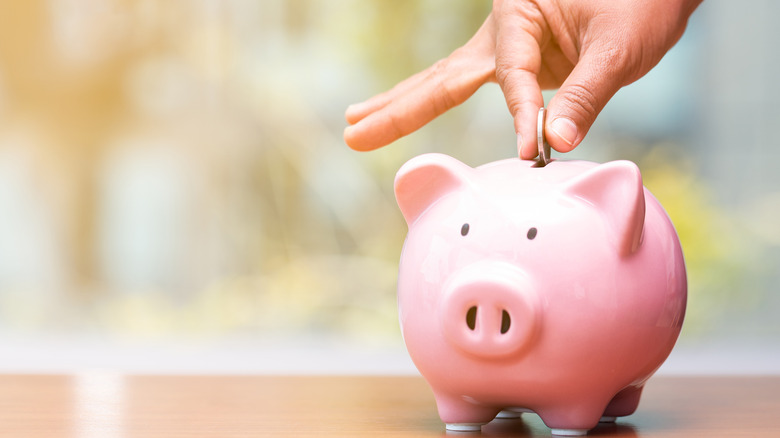If Your New Year's Resolution Is To Be Better With Money, Read This
Making New Year's resolutions is a tradition. For instance, in 2020, only about 26% of Americans did not set a 2021 goal for themselves while the remaining 74% did (via Finder.) Of course, not everyone sticks to their resolutions by the end of the year but that hardly seems to matter when making a self-development declaration at the beginning of each new year. In 2018, only 28% of Americans managed to see their resolutions through to the end, per Statista, and in 2020, it was about 35%, per Discover Happy Habits.
If you are wondering about the New Year's resolution you should make, you can join the numerous people choosing to spend their money wisely and make better financial decisions this year. This particular resolution is one of the most common New Year's resolutions of all time. A financial survey by Fidelity Investment even predicted that in 2022, 68% of Americans' New Year's resolutions will include financial success.
So, if you've chosen to improve your financial position this year, here are a few tips for you to consider.
New Year's resolutions about spending money better can be easily achieved
Being able to make better financial decisions that will help improve your net worth at the end of the year is one of the most common New Year's resolutions of all time. Making smart money moves requires strategy, though, and it all begins with creating goals that are clear and attainable, per Forbes Advisor. Most people who fail to achieve their resolutions at the end of the year do so because their goals are too ambiguous (via The New York Times.) For instance, instead of saying to yourself, "I'll save more money this year," you could say, "I'll save $100 at the end of every month."
Remember that the aim is to stick to the goal for the whole of the year, so focus on doing things in easy, small steps. This makes it simpler to commit to your money goals for the long haul, per Verywell Mind. However, don't start by putting away $100 at the end of every month if your income barely doubles that. For a start, you could decide to save $20 monthly. That way, you're pacing yourself right and it'll be easy for you to stay on course till the end.
Finally, consider getting yourself someone you can report your progress to (via CNBC). According to Bank of America spokesperson, Mary Hines Droesch, "Communicating openly about finances with someone you trust can help keep you accountable to your goals ... it's easier to stay motivated when you have a partner cheering you on," per Fox Business.

